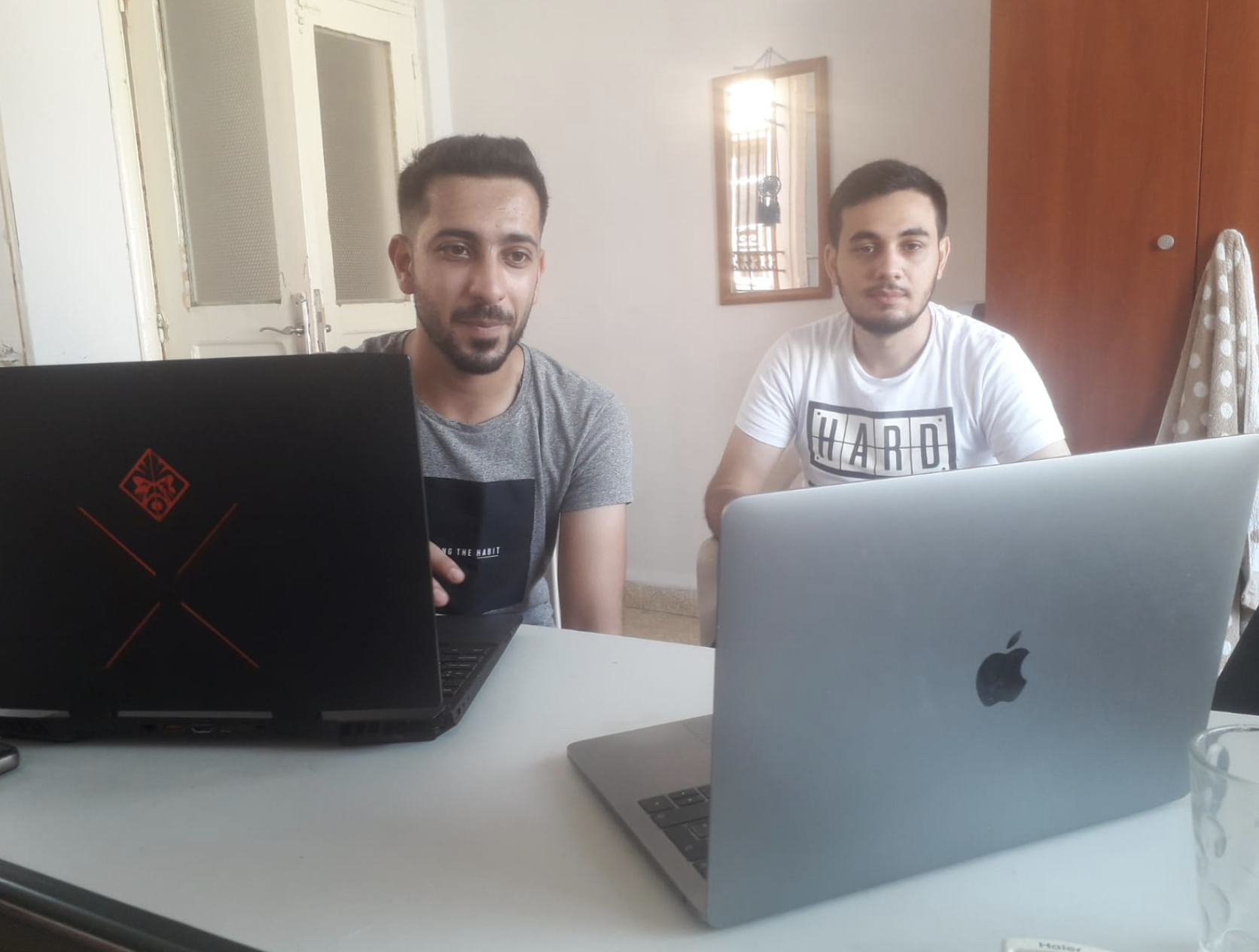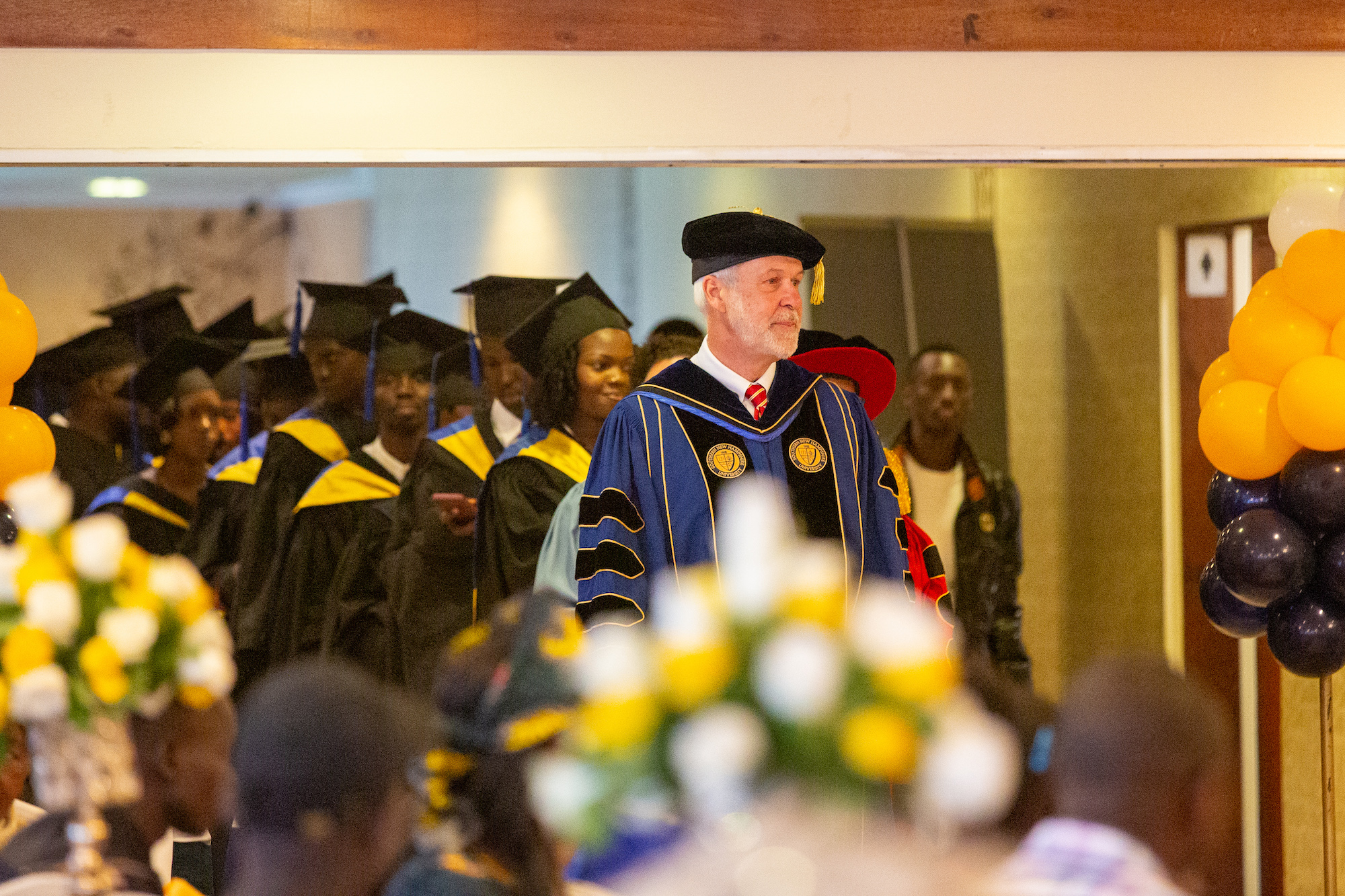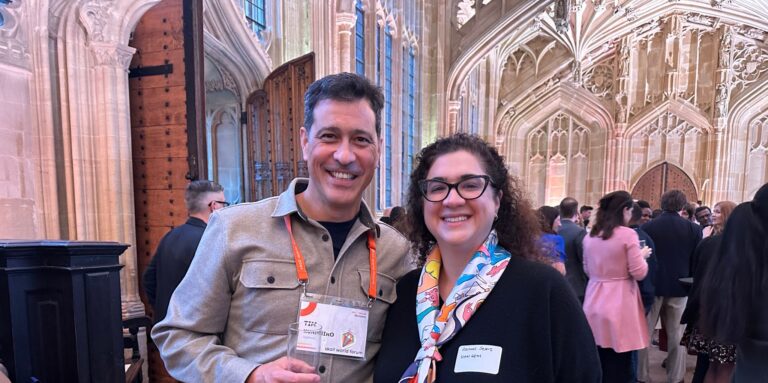SNHU GEM employer partner, Barrett Nash of InfiniteUp, how students can leverage experience with no-code and low-code technology to create employment opportunities.
At SNHU Global Education Movement (SNHU GEM), our goal is to provide high-quality, low-cost higher education tailored to meet the needs of displaced learners — equipping students with real-world knowledge and skills that unlock opportunities beyond graduation. One of the ways we achieve that is through our internship program and our work with employer partners like InfiniteUp, a global software development firm based in Lebanon.
We connected with Barrett Nash, one of InfiniteUp’s founders, to learn more about the company and how SNHU GEM students have shaped their work. More from our conversation with Barrett:
Can you share a bit more about Infinite Up? What is your mission?
Barrett: InfiniteUp is a no-code/low-code software development house founded by myself, my friend Harry Ryder and two talented SNHU GEM students, Malaz Aroub and Wasim Alshadadi.
Our mission has three parts: make high-impact technology, educate and share our learnings in the sector, build a company that is financially self-sufficient and continuously improving.
What is no-code/low-code, and what advantages does it offer your team and people new to software development?
Barrett: I believe that no-code/low-code represents the future of software development. Normally software development is text input with visual output. You write instructions in software languages like JS or PHP and output a visual display. With no-code/low-code you use a graphical user interface to develop apps instead of a text-based user interface.
This means you don’t need to learn a coding language before you can build apps.
The results are pretty astounding. Normally to learn how to develop websites can take months or years to get comfortable with code. With no-code/low-code we are teaching people to create apps from scratch in days and weeks.
I believe this could be a huge game-changer for the world; it makes learning and building technology more accessible.
Can you share more about your two SNHU co-founders and their work at InfiniteUp?
Barrett: InfiniteUp is co-founded with two GEM students, Malaz Aroub and Wasim Alshadadi. It has been a wonderful pleasure working with Malaz and Wasim.
I used to say I was the best no-code/low-code developer in the world, but it would seem that Malaz has taken my crown. He’s extremely cerebral, puts his heart into his work and always has a corny joke to make you laugh (or sigh).
It was Wasim, who has never developed any software before, reverse engineering from inception to a Google Play release of a Twitter clone. Over a seven-hour training session he hacked together a mature app that convinced me that no-code/low-code could be a skill set game changer.
I fully expect us all to work for Malaz and Wasim at some point in the future.
What has it been like having SNHU GEM students as interns? What do you hope they’ll gain from the experience?
Barrett: We currently work with three SNHU GEM interns in Tripoli — Hiba, Zelal and Nour — and they’re such a pleasure to work with. I hope that we get an opportunity to bring them on full time.
Often, software development is a male-dominated industry and (with a small nudge from SNHU GEM’s executive director, Chrystina) we decided to get ahead of this. In the future, I’d like gender equity to be something we strive for.
Hiba, Zelal and Nour, have shown a huge amount of potential, successfully reverse engineering Instagram and Coursera, building a recipe app and online store app, and now working on their own app from scratch.
It has been an extraordinary journey working with the GEM students. As Syrians displaced in Lebanon, it’s pretty amazing to be in our own little bubble learning a next-generation skill set with no-code/low code and working with international clients.
What advice do you have for refugees and displaced learners who are interested in software development or coding?
Barrett: I can see this being a future major opportunity for displaced persons and refugees to overcome any limitations, learn a meaningful skill, and make an income.
For students or others who are interested, follow Wasim’s video on reverse engineering Twitter using the no-code platform Adalo and if they can do it successfully, they can join us.
For more on InfiniteUp and their no-code/low-code work, visit www.infiniteup.dev.



